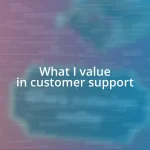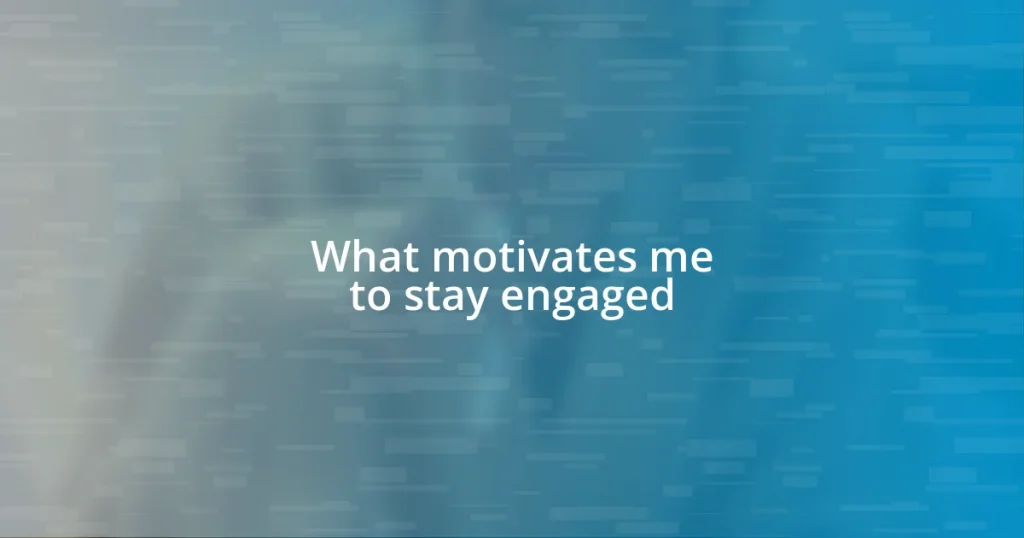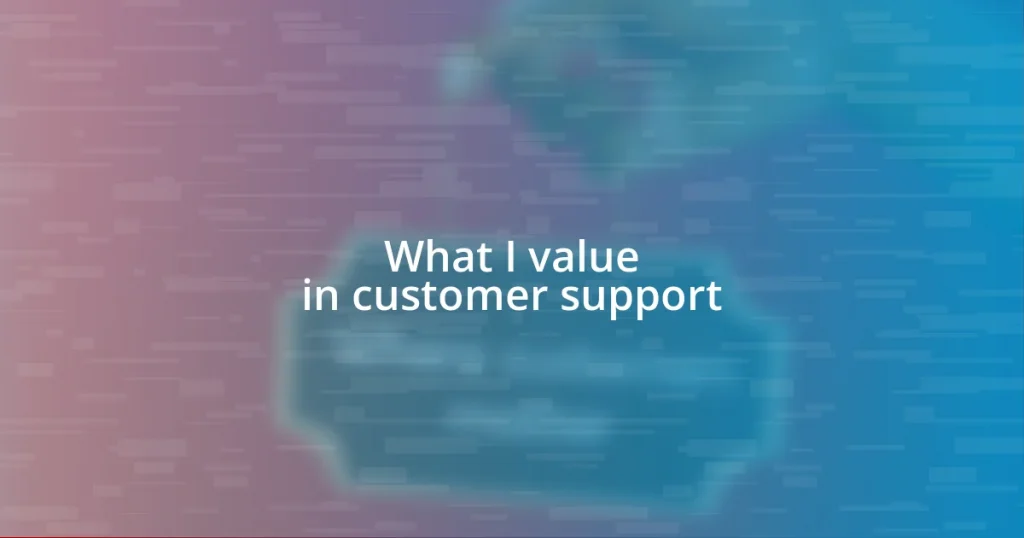Key takeaways:
- Understanding personal motivation involves aligning activities with personal values and recognizing intrinsic motivators like passion, personal growth, and meaningful connections.
- Setting engaging goals requires a balance of challenge and achievability, with flexibility to adapt when obstacles arise, enhancing motivation through personal relevance.
- Continuous celebration of achievements, both big and small, fosters motivation and a supportive environment, encouraging accountability and deeper connections with others.
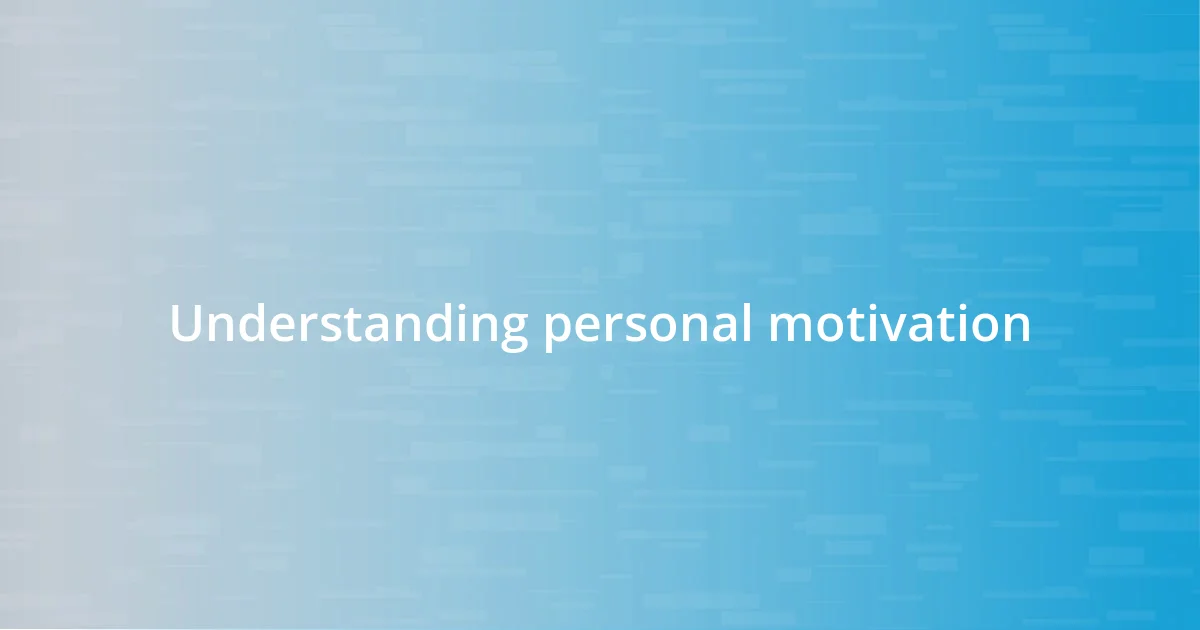
Understanding personal motivation
Understanding personal motivation begins with recognizing what truly drives us as individuals. For me, it’s about the sense of accomplishment I feel when I overcome challenges. I remember a time I committed to a long-term project that seemed daunting at first; each small victory fueled my passion and kept me engaged.
Have you ever paused to consider what makes you excited to jump out of bed in the morning? Reflecting on my own experiences, I find that my intrinsic motivation often stems from personal values. When I align my daily activities with what I believe is important—like creativity or helping others—I feel more energized and focused. It’s remarkable how clarity about our values can transform mundane tasks into fulfilling pursuits.
Sometimes, motivation can wane unexpectedly. I recall periods where my enthusiasm dipped, often triggered by external pressures or burnout. Those experiences taught me the importance of self-care and re-evaluating my goals. Now, when I sense that disengagement creeping in, I ask myself, “What would reignite my passion?” This simple question helps me reconnect with my motivation and rediscover my drive.
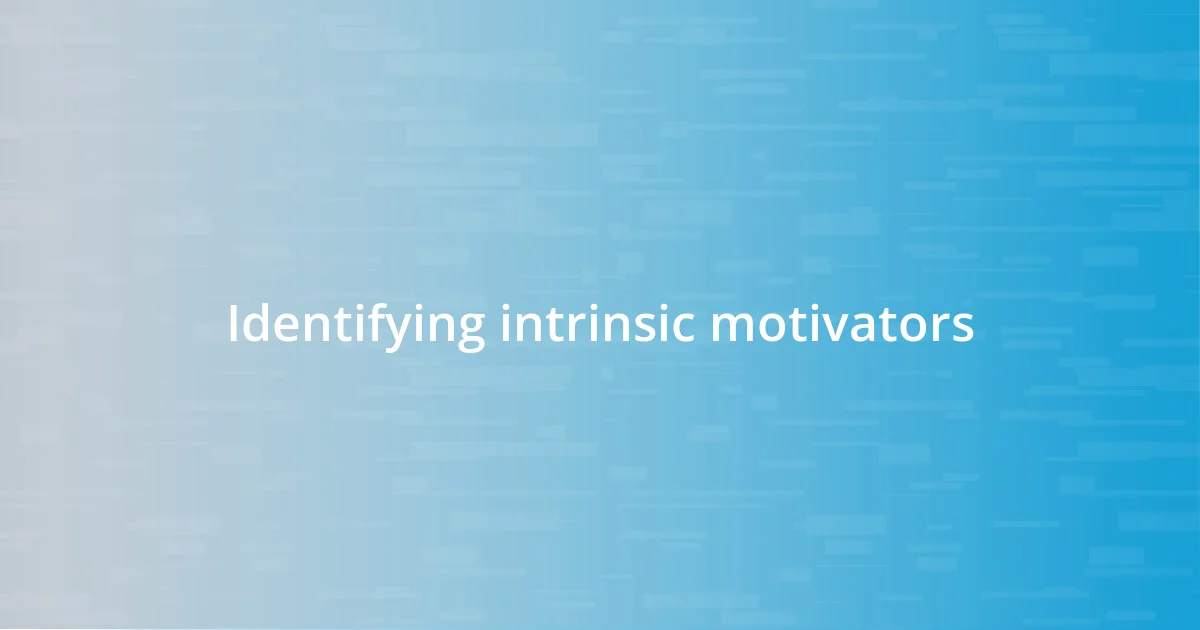
Identifying intrinsic motivators
Identifying intrinsic motivators involves digging deep into our passions and values. For instance, I’ve always loved painting, but it took a while to realize how much joy it brings me beyond just the finished piece. I remember losing myself in the colors one afternoon; it wasn’t about the outcome but the sheer thrill of creation. That moment taught me that many times, intrinsic motivation lies in the process rather than the product.
To help uncover your intrinsic motivators, consider these key aspects:
- Passion Projects: What activities make you lose track of time?
- Personal Values: What principles do you prioritize in your life?
- Continuous Growth: How important is learning new skills to you?
- Meaningful Connections: Do you thrive when collaborating and building relationships?
- Authenticity: Are you energized when expressing your true self?
Reflecting on these can illuminate what keeps us engaged and energized, making it easier to integrate these intrinsic elements into our daily lives.
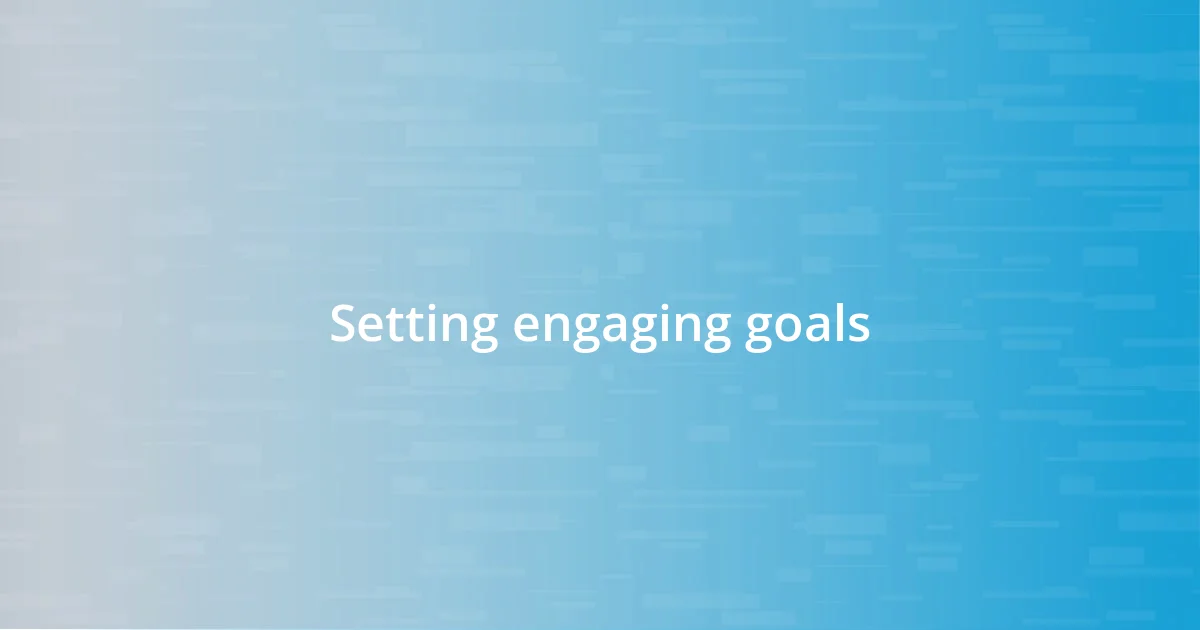
Setting engaging goals
Setting engaging goals requires a blend of challenge and achievability. For me, goal-setting is a bit like a dance; there’s a rhythm to finding the right balance. I once set a goal to run a half-marathon. Initially, the idea was intimidating, but by breaking it down into smaller, manageable milestones—like running a mile without stopping—I found joy in each little achievement along the way. That early morning run became something I looked forward to, transforming a distant goal into a daily delight.
When I think about what makes my goals engaging, it often comes down to personal relevance. I vividly remember setting a goal to volunteer more in my community. At first, it felt like just another item on my to-do list. However, as I began to see the direct impact of my efforts on the people I was helping, my motivation skyrocketed. The key here was aligning my goals with my values, which made the journey not only engaging but deeply fulfilling.
In my experience, the best goals are also flexible. Life is full of surprises, and when parts of my plan didn’t go smoothly, I learned to adapt. I recall a project I initiated that faced a sudden roadblock. Instead of falling into frustration, I reassessed my approach, which ultimately sparked even more creativity in solving the issue. Being open to change not only kept me engaged but often led to outcomes that exceeded my initial expectations.
| Types of Goals | Characteristics |
|---|---|
| Short-term Goals | Quick wins that provide immediate satisfaction. |
| Long-term Goals | Broader ambitions that motivate sustained effort and commitment. |
| Flexible Goals | Adaptable and responsive to changing circumstances and priorities. |
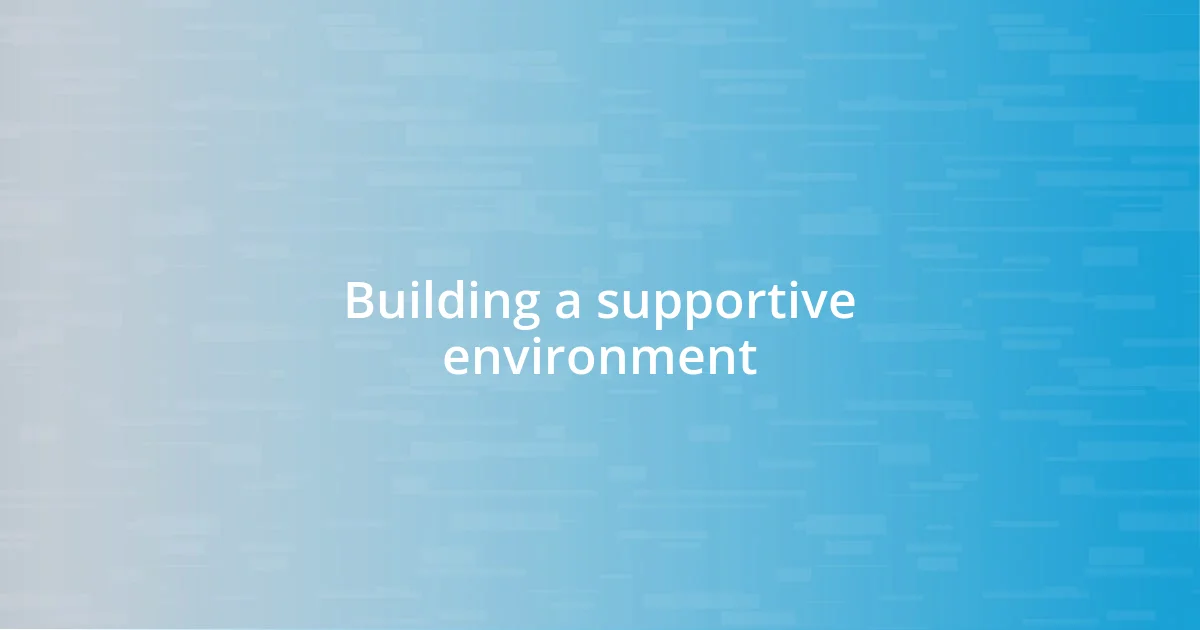
Building a supportive environment
Creating a supportive environment is essential for fostering engagement and growth. I’ve noticed that when I surround myself with people who uplift and inspire me, my motivation significantly increases. For example, I once joined a community group focused on lifelong learning. The enthusiasm radiating from others ignited my own desire to learn and connect, making every meeting a source of inspiration.
Establishing a network of support means more than just having friendly faces around; it’s about genuine encouragement. I remember a time when I was unsure about pursuing a new certification. A friend shared stories of their own challenges during similar journeys. That conversation sparked something in me. Can you think of a time when someone’s belief in you made a difference? For me, knowing that others believed in my potential made stepping out of my comfort zone feel less daunting.
Additionally, creating a supportive environment often requires active participation. When I started initiating regular check-ins with my peers, I was genuinely surprised at how much this fostered accountability and connection. These conversations didn’t just help us stay focused on our goals; they turned into brainstorming sessions, allowing us to tackle challenges together. The collective energy was palpable, demonstrating that collaboration really can enhance engagement. How do you foster connections in your own life? I’ve learned that being proactive in building these relationships can be one of the most rewarding investments of my time.
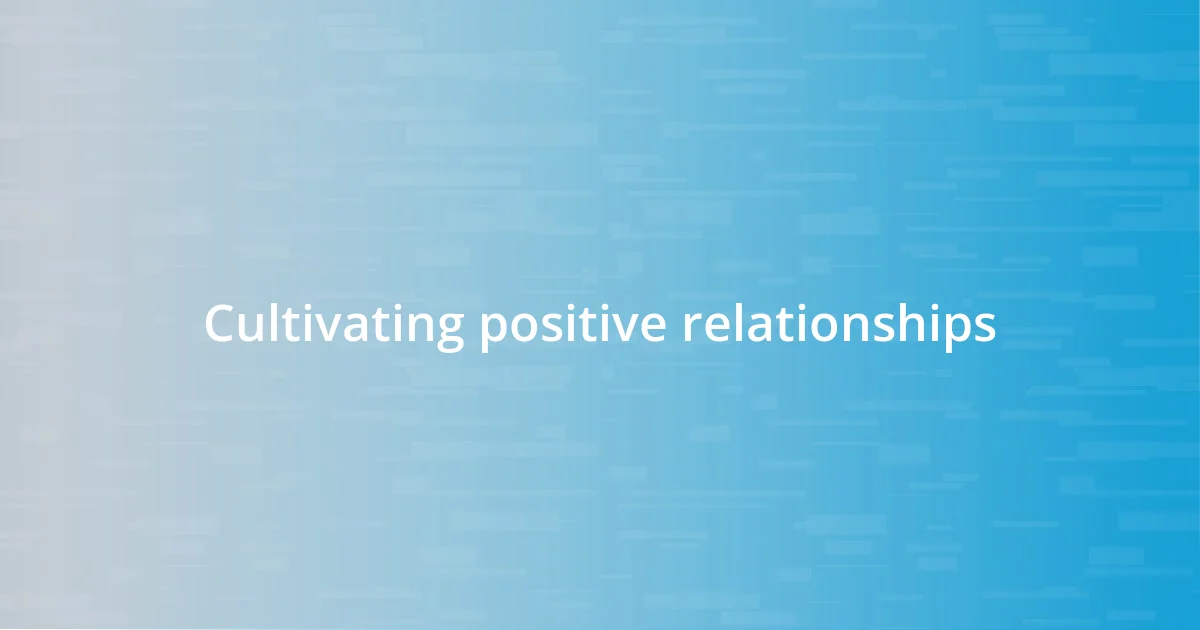
Cultivating positive relationships
Cultivating positive relationships is something I truly value. One memorable experience was when I joined a book club. Initially, I was hesitant due to my introverted nature. But as I started sharing insights and hearing diverse perspectives, I felt a sense of belonging. Isn’t it incredible how a shared passion can connect people in ways we never anticipated?
I’ve also found that engaging with others on a deeper level fuels my motivation. I recall a time I reached out to a colleague to brainstorm ideas for a project. What started as a simple chat turned into a brainstorming session filled with laughs and inspiring ideas. It reminded me that collaboration can lead to unexpected creativity. Have you ever experienced that rush when working together with someone?
Building these relationships isn’t just about networking; it’s about nurturing trust. I’ve learned that being vulnerable can invite others to open up as well. When I opened up about my struggles in a team meeting, it surprised me to see how many shared similar feelings. Sharing our challenges fostered an environment where we could all grow. Wouldn’t you agree that meaningful conversations are the bedrock of vibrant relationships?
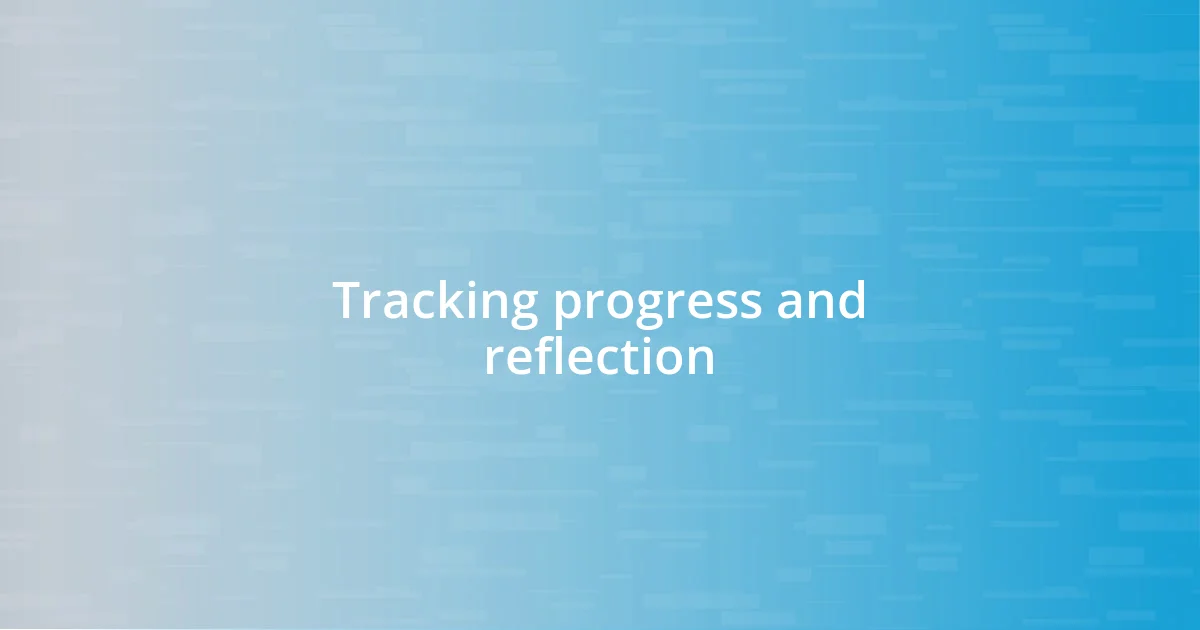
Tracking progress and reflection
Tracking my progress has always been a crucial part of my personal development journey. I remember a time when I set a goal to improve my public speaking. Instead of waiting until the end to evaluate my growth, I kept a journal documenting my rehearsals and presentations. Looking back at those entries not only showed my progression but also highlighted areas where I could improve.
Reflection plays a transformative role in staying engaged. For instance, one evening, I decided to review my week in terms of productivity and learning. As I reflected, I felt a mix of pride and determination. It was eye-opening to see how I had risen to challenges, but it also made it clear where I was falling short. Have you ever paused to assess your own journey? Those moments can reveal powerful insights that keep you connected to your goals.
I also find that celebrating small victories is essential. After completing a challenging project, I took time to acknowledge the steps I had taken to reach that milestone. That sense of accomplishment fueled my motivation for future tasks. When was the last time you truly celebrated a success, big or small? Embracing these moments of reflection can significantly enhance our engagement and commitment to personal growth.
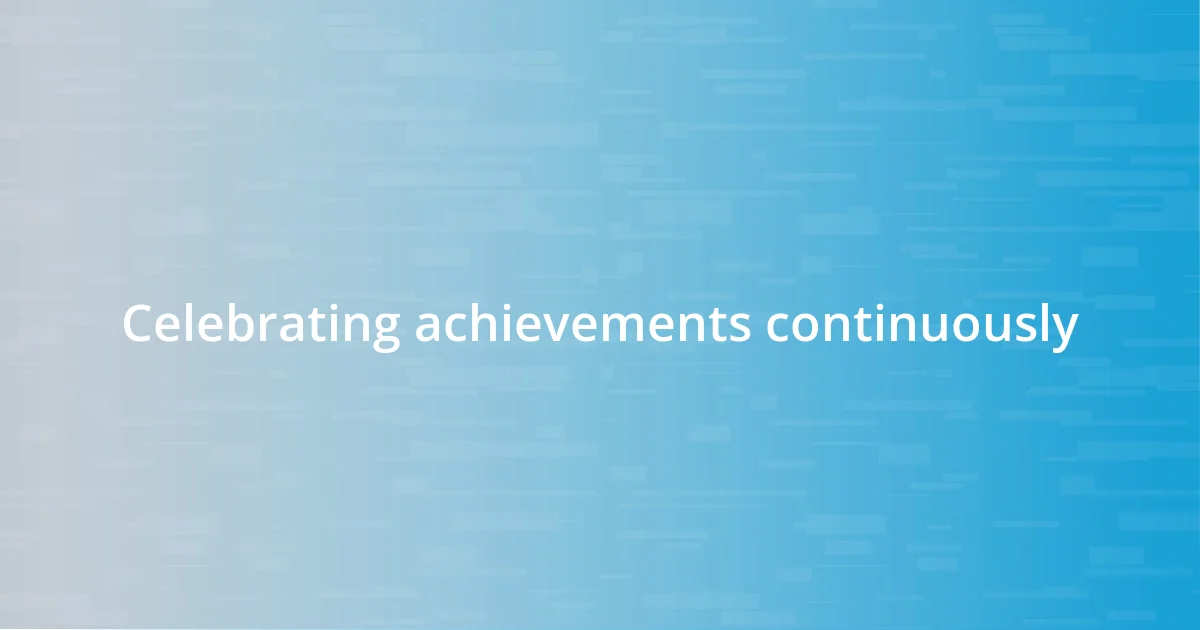
Celebrating achievements continuously
Continuous celebration of achievements is something I’ve come to realize can dramatically shift my engagement levels. I remember a time when I completed a particularly tough project at work. Instead of brushing it off, my team organized a small gathering, and we shared our accomplishments over snacks and laughter. It was such a simple act, yet feeling recognized sparked a renewed energy in me—I wanted to tackle even bigger challenges. Have you ever felt that surge of motivation after being celebrated? It’s amazing how that collective acknowledgment can elevate our spirits.
Another turning point for me was when I started integrating regular check-ins to acknowledge progress, not just results. I initiated what I call “mini-celebrations” every few weeks in our team meetings. Just a quick round where everyone shares one accomplishment, big or small. This practice transformed our atmosphere; suddenly, setbacks felt less daunting, knowing we would have a moment to share wins soon. Doesn’t it feel good to have those moments to shine, no matter how small the achievement is?
Looking back, celebrating achievements continuously turned routine objectives into milestones worth reflecting on. I’ve noticed that when I share my wins, I not only inspire others but also deepen my own commitment to my goals. For example, after completing a certification, I shared my experience on social media. The support and congratulations I received felt incredible and pushed me to pursue the next challenge. Isn’t it reassuring to think that our successes can inspire others to strive for their own? These celebrations nurture a culture of positivity that keeps me engaged and moving forward.


